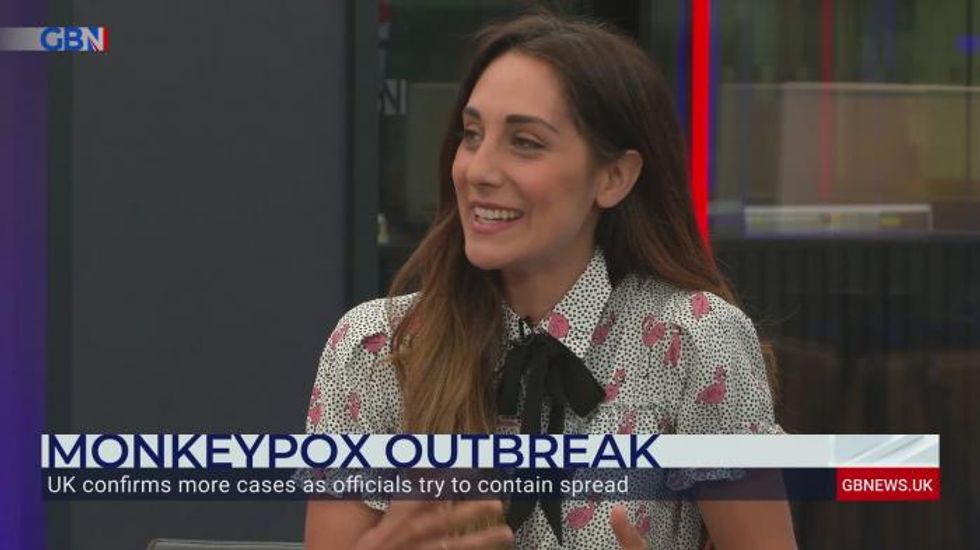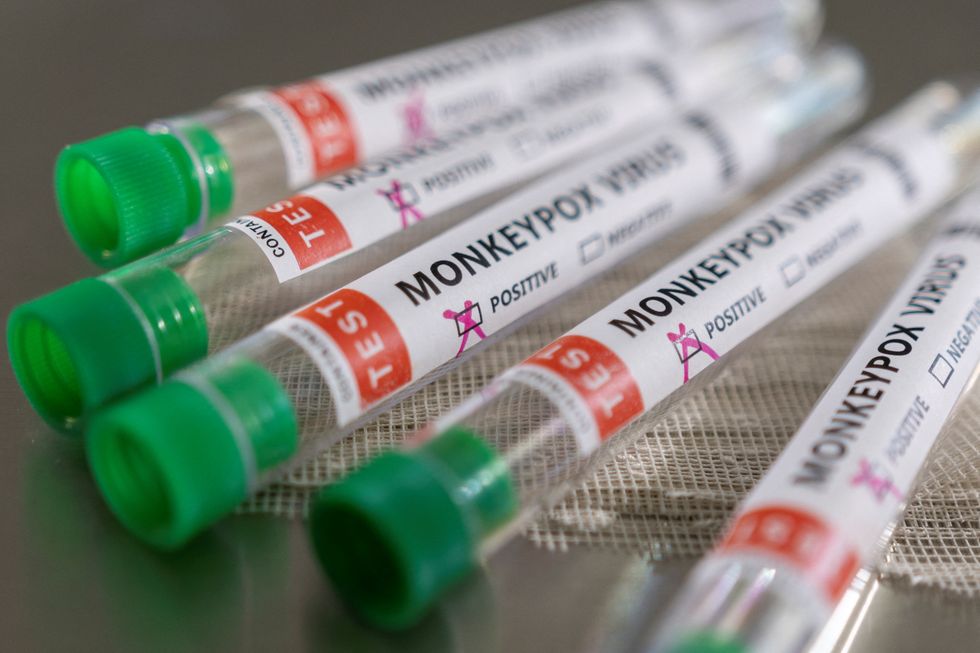Don't Miss
Most Read
Trending on GB News
The source of monkeypox investigations in parts of Europe is being linked to parties in the Canary Islands.
Portuguese authorities believe the first cases in the country came from a man who attended parties in the Canary Islands in April and May.
In his medical report there are descriptions of lesions and other symptoms caused by the monkeypox virus.
Reports link the transmission of the disease to other parties in the Canary Islands, namely Pride Maspolamas, an event that was attended by 80,000 people and which took place between the 5th and 15th of May.
A British tourist has tested positive for the virus in Fuerteventura, the Canary Islands' Health Service has confirmed.
The Canary Islands
PA Archive
Confirmed monkeypox cases in the UK have more than doubled to 57.
The figure, released by the UK Health Security Agency (UKHSA) on Monday, was an increase from the previously confirmed 20 cases.
There are 56 confirmed cases in England and Scotland confirmed its first case on Monday.
Northern Ireland’s Public Health Agency and Public Health Wales each said they have had no confirmed cases.
Health officials said that while the outbreak is “significant and concerning”, the risk to the UK population remains low.
The Government has stocks of the smallpox vaccine which is being offered to very close contacts of those affected.
Those at the highest risk of contracting the disease are being asked to self-isolate at home for 21 days, with others warned to be on the lookout for symptoms.
Transmission between people is occurring in the UK, with a large proportion of cases identified in the gay, bisexual and men who have sex with other men community.
Monkeypox is not normally a sexually transmitted infection, but it can be passed on by direct contact during sex.
Professor David Heymann, the World Health Organisation’s former assistant director-general for health security and environment, is reported to have said a leading theory to explain the spread of the disease was sexual transmission at raves in Europe.
He said it is one hypothesis among many.
Test tubes labelled "Monkeypox virus positive"
DADO RUVIC
The Associated Press reported the London School of Hygiene and Tropical Medicine professor as saying: “We know monkeypox can spread when there is close contact with the lesions of someone who is infected, and it looks like sexual contact has now amplified that transmission.”
Experts have warned against “misinformation, stigma and discrimination” around the condition.
During a WHO question and answer session, Andy Seale, an adviser with an HIV, hepatitis and STI programme, said: “There are ways that we can work with communities to learn from really decades of experience around tackling stigma and discrimination with HIV. We want to apply that lesson, those lessons learned, to this experience.”
The disease can also be spread through touching clothing, bedding or towels used by someone with the monkeypox rash, and through the coughs and sneezes of somebody with the infection.
The disease is usually mild but can cause severe illness in some cases.
Symptoms include fever, headache, muscle aches, backache, swollen lymph nodes, chills and exhaustion.
A rash can develop, often beginning on the face, which then spreads to other parts of the body including the genitals.
Dr Susan Hopkins, chief medical adviser at the UKHSA, thanked people affected for coming forward, saying they are “helping us limit the spread of this infection in the UK”.
She added: “Because the virus spreads through close contact, we are urging everyone to be aware of any unusual rashes or lesions and to contact a sexual health service if they have any symptoms.”
Boris Johnson has said monkeypox is a rare disease but it is important to “keep an eye on it”.
The Prime Minister told reporters on a visit to a school in south-east London: “It’s basically a very rare disease and so far the consequences don’t seem to be very serious, but it’s important that we keep an eye on it and that’s exactly what the the new UK Health Security Agency is doing.”
Asked whether there should be quarantine for visitors or the use of the smallpox vaccine, Mr Johnson said: “As things stand the judgment is that it’s rare.
“I think we’re looking very carefully at the circumstances of transmission. It hasn’t yet proved fatal in any case that we know of, certainly not in this country.”
Downing Street said there are no plans to hold a meeting of the Cobra emergency committee over monkeypox, or to impose any travel bans.
The Prime Minister’s official spokesman said that while vaccines are being offered to close contacts, there are no plans for an “at scale” vaccination programme.
Monkeypox is usually found in west Africa, and does not often spread elsewhere.












